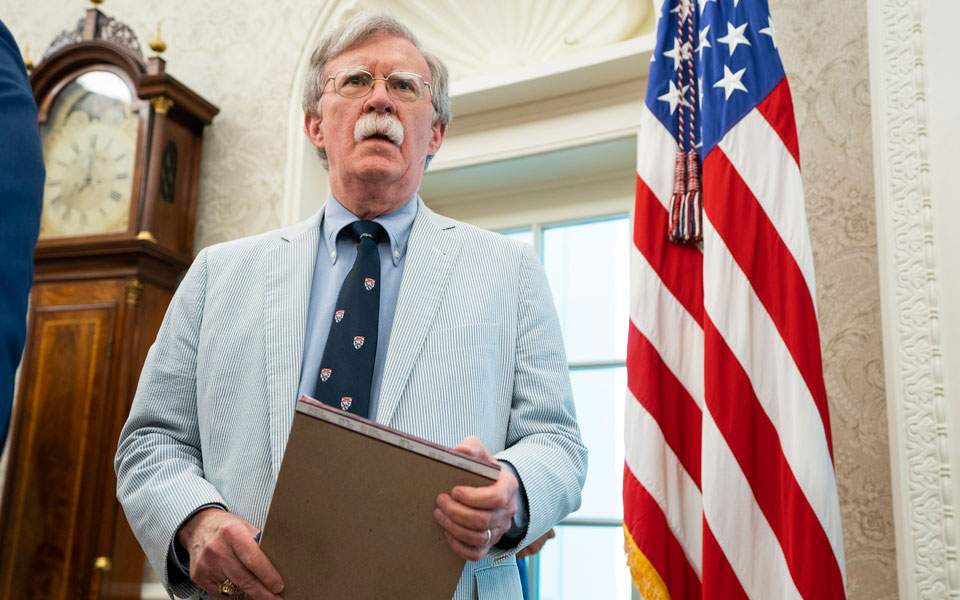Who will pick up the phone in Washington?

I started reading the book by John Bolton, the former national security adviser to US President Donald Trump, and then I tried to imagine what would happen in the White House if a Greek-Turkish crisis were to break out by the end of 2020.
The stories I’ve heard so far about how the American president perceives and handles foreign policy issues range from funny to extremely worrisome.
When he visited the White House as prime minister, Alexis Tsipras raised – as is always the case – the issues that concern Greece in relation to Turkey. He referred to the threat in the Aegean, the escalation of tension and the Cyprus issue.
Trump’s comment was something along the lines of: “[Recep Tayyip] Erdogan is a good guy. He is great for business. Why don’t you make a deal with him?” It was clear that in his mind there was no difference whether the discussion was about building a hotel in Istanbul or the sensitive issue of a country’s national sovereignty.
When the next prime minister who visited the White House again explained Greece’s national red lines in the event that Turkey decided to conduct exploratory activities within Greece’s continental shelf, the answer surprised those that were sitting at the big table.
“Sometimes it’s not a bad idea to push things to extremes before an agreement is reached. I keep doing it.” was more or less the president’s comment. Another US official had to intervene and explained that a military incident in the Eastern Mediterranean is no laughing matter because it can easily destabilize the whole region.
Reading “The Room Where it Happened” – whose author is no “dove” – you realize that Trump’s mind sees all foreign policy matters in the same unorthodox or irrational way. He changes his mind, he gets angry, makes personal deals, ignores and systematically undercuts his advisers, and he hates
the deep state in Washington. In other words, the traditional mechanisms of American foreign policy have collapsed and nothing is like it was.
What does this mean in practice? That this period is reminiscent of 1974 because there was also a power vacuum in the US then. Now, however, things are more dangerous and will be so for the next few months. If something serious occurs in the Aegean or south of Crete no one knows who to call in Washington or what response will be given from the other side of the Atlantic. Middle-ranking officials and Congress members will play their part but decisions are taken at the White House.
Experienced handlers of Greek-American relations consider that Secretary of State Mike Pompeo will want to play a leading role in such a crisis. But this is merely speculation; they do not know this for sure. And this is because, during this period, no one can make any accurate predictions as to how decisions will be taken in Washington. And if there are any doubts over this, they can read Bolton’s book.





